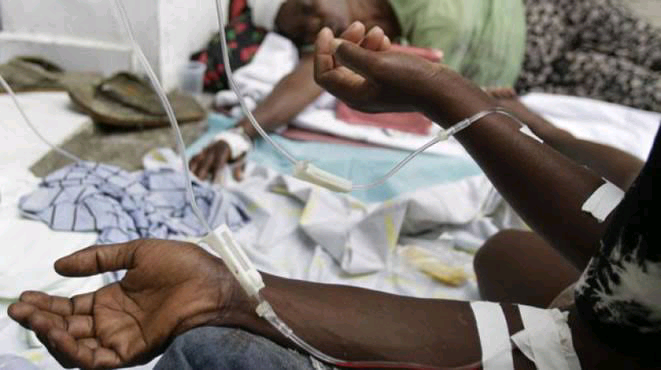The Federal Government urged states and local governments to increase environmental health surveillance in areas where food and beverages are sold across the country.
These areas include markets, garages, schools, restaurants, stadiums, and venues for religious and sporting events.
A statement in Abuja quoted the Minister of State for Environment, Dr. Iziaq Salako, issuing this directive as part of efforts to curb the spread of cholera nationwide.
Salako called on all commissioners for environment and local government chairpersons to support environmental health officers in intensifying sanitation and hygiene efforts through improved community-led total sanitation.
He stated: “It is also to strengthen collaboration with the health authorities and other stakeholders in line with the one health approach of the federal government.”
The minister added that arrangements had been made to provide the most affected states with chlorine solution or tablets, and resources for water and food testing to prevent further transmission.
He noted that a recent report from the Nigeria Centre for Disease Control (NCDC) indicated 1,159 suspected cases, 65 confirmed cases, and 30 deaths across 30 states.
The statement highlighted that the worst-hit states—Bayelsa, Lagos, Zamfara, Abia, Bauchi, Cross River, Ebonyi, Delta, and Katsina—accounted for 90% of the cases.
“The ministry has been actively involved through the Department of Pollution Control and the Environmental Health Council of Nigeria (EHCON) in efforts to stop the spread of this deadly disease,” the statement added.
The ministry’s activities include water and food testing to identify infection sources, environmental sanitation campaigns, and household water chlorination.
The minister urged the public to remain vigilant and adopt good sanitation and hygiene practices at home and in workplaces.
He emphasized the importance of maintaining a clean environment, proper waste disposal, and using clean and safe water. Water from suspicious sources should be boiled or treated with chlorine.
He also advised against consuming locally prepared drinks unless their preparation is confirmed to be hygienic. Regular hand washing with soap and water is essential, especially after using the toilet, handling children who have used the toilet, preparing food, eating, and playing with animals.
Meanwhile, the outbreak has resulted in 53 deaths as of Monday, according to NCDC Director General, Jide Idris.
Speaking to journalists in Abuja, Idris reported 1,528 suspected cases across 107 local government areas in 31 states, with a case fatality rate of 3.5% since the beginning of the year, placing Nigeria at a high-risk level (Level 3).
The National Cholera Multi-Sectoral Emergency Operations Centre (EOC) has been activated to ensure immediate and coordinated actions to address the situation.


